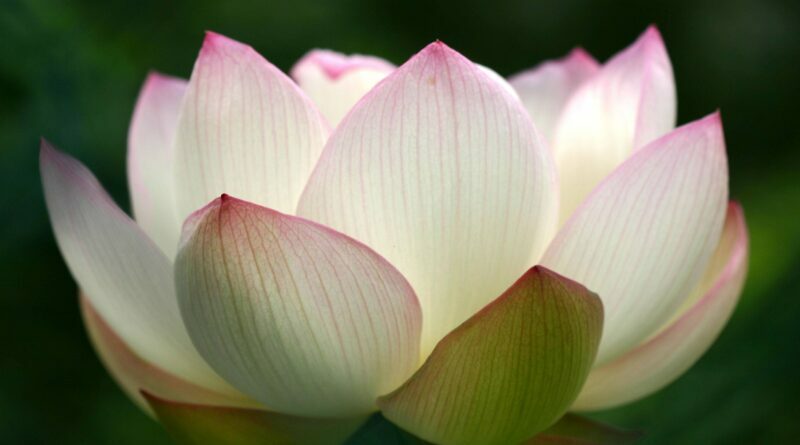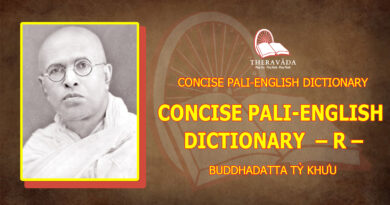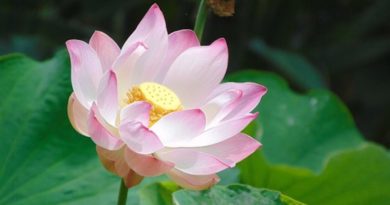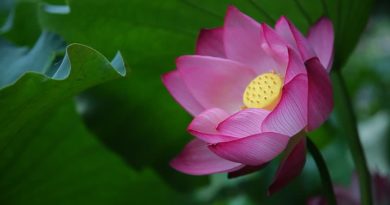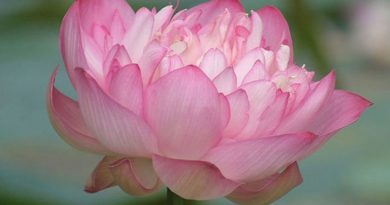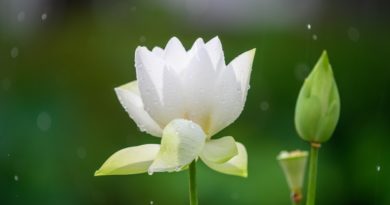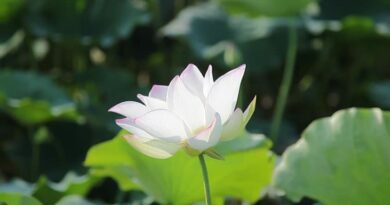Answers By Mr. S. N. Goenka: Daily Life
-How to practice Vipassana in daily life?
Mr. S. N. Goenka: Take a Vipassana course, and then you will understand how to apply the practice in your life. If you just take a course and don’t apply it in life, then Vipassana will become just a rite, ritual, or a religious ceremony. It won’t help you. Vipassana is to live a good life, every day, every moment.
-What is the difference between Vipassana and life?
Mr. S. N. Goenka: If Vipassana is developed within us it becomes an integral part of our lives. If it is only discussed intellectually and not practiced then it is of no use to us.
-Vipassana focuses on the internal reality. That’s fine, but what about the external reality that really causes a great deal of suffering? What use is Vipassana in dealing with the real pain of the world?
Mr. S. N. Goenka: Understand, Vipassana is not an escape from the problems of day-to-day life. One comes to a course for ten days to learn the technique of Vipassana and gain strength to face the problems of the outside world—just as you might go to a hospital to become physically healthy, and then leave to live healthily in the world. Similarly, when you learn to use this technique of observing the reality inside, you can face the problems outside more easily. It is not that by the practice of Vipassana all the problems will disappear; but rather, your ability to face them will improve.
The problems of the outside world are created by individuals living in the darkness of ignorance. Just as lighting one lamp will dispel the darkness around it, similarly, one person practicing Vipassana will affect society. If more people practice Vipassana, slowly this will start having a positive influence in the world. Even if only this one person is practicing Vipassana at least he or she will be able to face the problems and find solutions. And those solutions will be healthy solutions.
(Courtesy: International Vipassana Newsletter, September 1992 issue)
-How can a truly Dharmic person face this adharmic world?
Mr. S. N. Goenka: Don’t try to change the adharmic world. Try to change the adharma in yourself, the way in which you are reacting and making yourself miserable. As I said, when somebody is abusing you, understand that this person is miserable. It is the problem of that person. Why make it your problem? Why start generating anger and becoming miserable? Doing that means you are not your own master, you are that person’s slave; whenever that person wants to, he can make you miserable. You are the slave of someone else who is a miserable person. You have not understood Dharma. Be your own master and you can live a Dharmic life in spite of the adharmic situations all around.
-Please tell us what kind of changes we can expect through Vipassana practice?
Mr. S. N. Goenka: To experience this is precisely the reason why we are asking for 10 days of your time. How else can we teach you what we are trying to explain! You have to give something in order to gain something. These discourses will not tell you much, you need to experience what we are saying for yourself. Let this talk be an inspiration for you to try it and see if it really helps in purifying the defilements or not. This experience is very pleasing and you will find that your life starts changing for the better.
-Can we get complete happiness and complete transformation through Vipassana?
Mr. S. N. Goenka: It is a progressive process. As you start working, you will find that you are experiencing more and more happiness, and eventually you will reach the stage which is total happiness. You become more and more transformed, and you will reach the stage which is total transformation. It is progressive.
-I know what wholesome action is, but I cannot put this knowledge into practice in real life. My mind is not steady and I am both greedy and lazy
Mr. S. N. Goenka: The knowledge that you have gained is only intellectual. When you realize this at the experiential level, you will begin to develop strength. You will begin to feel at the experiential level that you need to remain equanimous in all situations of life. Let the conviction come at the experiential level, and you will grow more and more confident as you keep on practicing Vipassana in the right way, with understanding.
-Some people have impurities, but they feel happy and don’t look miserable. Please explain?
Mr. S. N. Goenka: You have not entered the minds of these people. A person may have a lot of money, and others may feel: “Such a happy person. Look, he has so much wealth.” But what you don’t know is that this person can’t get sound sleep; he has to use sleeping pills—a very miserable person. You can know for yourself how miserable you are, going deep inside. You can’t understand at the external level by seeing sombody’s face whether he or she is miserable or happy. The misery lies deep inside.
-You talk so much about suffering and mental defilements. Isn’t your message pessimistic?
Mr. S. N. Goenka: How is it pessimistic? This is the most optimistic message! Misery exists, but if there is a way to come out of misery, the message is full of optimism. If somebody says, “There is misery and no way to come out of it, you have to suffer misery your whole life,” that would be pessimistic. But here the message is, “You can come out of it!” Whatever the misery may be, there is a way to come out of all the miseries. It is the most optimistic message!
-How does one escape anger?
Mr. S. N. Goenka: With the practice of Vipassana. A Vipassana student observes respiration, or the bodily sensations caused when angry. This observation is with equanimity, with no reaction. The anger soon weakens and passes away. Through continued practice of Vipassana, the habit pattern of the mind to react with anger is changed.
-I can’t suppress my anger, even if I try.
Mr. S. N. Goenka: Don’t suppress it. Observe it. The more you suppress it, the more it goes to the deeper levels of your mind. The complexes become stronger and stronger, and it so difficult to come out of them. No suppression, no expression. Just observe.
-What would you say is the purpose of life?
Mr. S. N. Goenka: To come out of misery. A human being has the wonderful ability to go deep inside, observe reality, and come out of suffering. Not to use this ability is to waste one’s life. Use it to live a really healthy, happy life!
-What is the ultimate goal of life?
Mr. S. N. Goenka: The ultimate life, the ultimate goal, is here and now. If you keep looking for something in the future, but you don’t gain anything now, this is a delusion. If you have started experiencing peace and harmony now, then there is every likelihood that you will reach the goal, which is nothing but peace and harmony. So experience it now, this moment. Then you are really on the right path.
-How to accomplish one’s goals and ambitions?
Mr. S. N. Goenka: Purify your mind by Vipassana and you become the master of your mind. Then you will find that all the work you do at the mundane level will be successful. At the supra-mundane level also, your work will be successful. So be the master of your mind. Make your mind pure.
-Please help us understand how to integrate Vipassana into the business world?
Mr. S. N. Goenka: It can be integrated into everyone’s life. A businessperson has a lot of responsibility and has to deal with many people-the employees, the workers in the factory, or people in management. Or the government officials and all that. Vipassana will help you deal with people in a way that is very friendly, because your mind will be full of love and compassion for others. So, whenever any situation arises that disturbs you, accept the fact: now my mind is disturbed. Just observe the sensations for some time, and you will find that you again become calm. With a calm and tranquil mind, a balanced mind, whatever decision you make will be a good one; whatever problem comes, you can solve it easily.
(Courtesy: International Vipassana Newsletter, May 2002 issue)
-As an industrialist and in business, do you see that Vipassana could ever spread into business?
Mr. S. N. Goenka: Oh certainly. Earning money—just earning money—doesn’t give peace. I have passed through all that so I know having a lot of money is full of misery. But money with Dhamma will give so much peace. And this money will be used for a good cause, which is good for them, good for others.
-How can we make others peaceful?
Mr. S. N. Goenka: Make yourself peaceful! Only then you can make others peaceful.
-Isn’t this technique self-centered? How can we become active and help others?
Mr. S. N. Goenka: First you have to be self-centered, you have to help yourself. Unless you help yourself, you cannot help others. A weak person cannot help another weak person. You have to become strong yourself, and then use this strength to help others and make others strong also. Vipassana helps one develop this strength to help others.
-How can I practice Dharma and yet hold on to my hopes and aspirations to make the world a better place?
Mr. S. N. Goenka: You have aspirations, there is nothing wrong in that. But to attain your aspirations, if you keep on generating impurity in your mind, you are far away from your goal. You are losing the peace and harmony of your mind. With peace of mind, maintaining perfect balance of the mind, do whatever is necessary in human life, good for you and good for others.
-What is the relevance of Dhamma to a person on the street whose stomach is empty?
Mr. S. N. Goenka: Dhamma is helpful to everyone, rich or poor. A large number of people living in poverty come to Vipassana courses and find it very helpful. Their stomachs are empty but their minds also are so agitated. With Vipassana, they learn how to be calm and equanimous. Then they can face their problems and their lives improve. They also come out of addiction to alcohol, gambling and drugs.
-I can understand meditation will help maladjusted, unhappy people, but how can it help someone who already feels satisfied with his life, who is already happy?
Mr. S. N. Goenka: Someone who remains satisfied with the superficial pleasures of life is ignorant of the agitation deep within the mind. He is under the illusion that he is a happy person, but his pleasures are not lasting and the tensions generated at the deep levels of the mind keep increasing, to appear sooner or later at the surface of the mind . When that happens, this so-called ‘happy’ person becomes miserable. So why not start working here and now to deal with that situation?
-Which is better: temple construction, service, teaching or hospital work?
Mr. S. N. Goenka: All these social services are important; there is nothing wrong with them. But do them with purity of mind. If you do them with an impure mind, generating ego, it does not help you and it does not help others. Do it with purity of mind, with love, with compassion and you will find that it has started helping you, and it has started giving real benefit to others also.
Source: https://www.vridhamma.org

